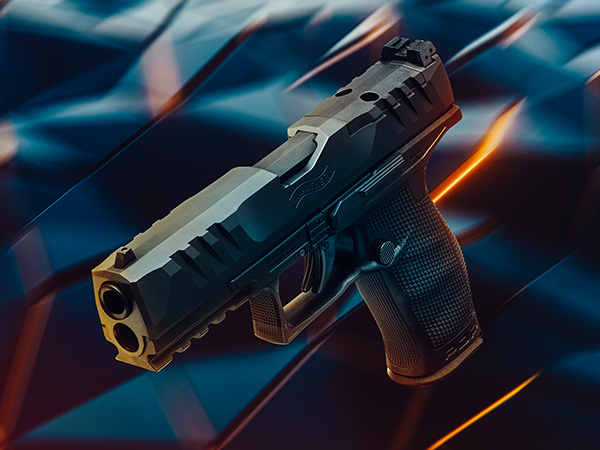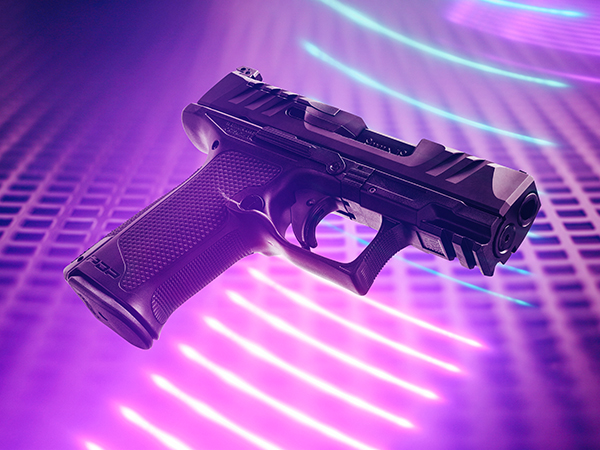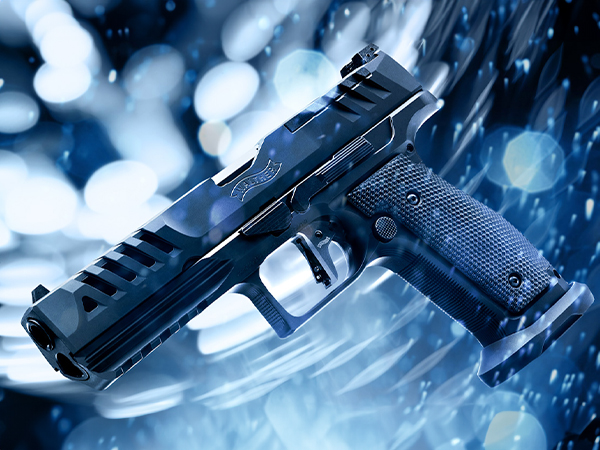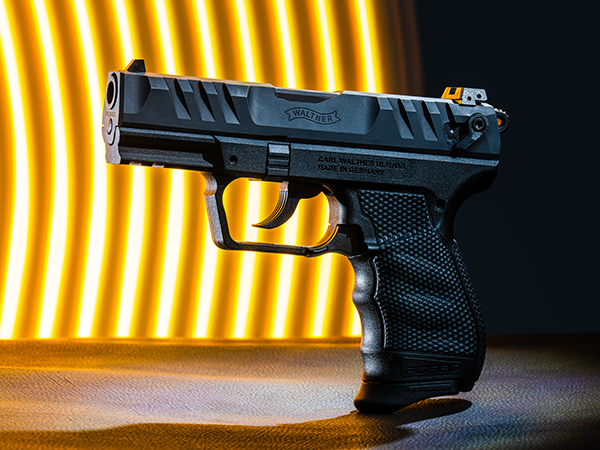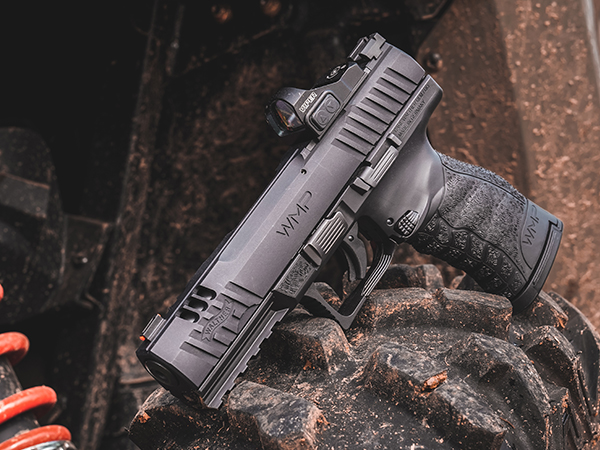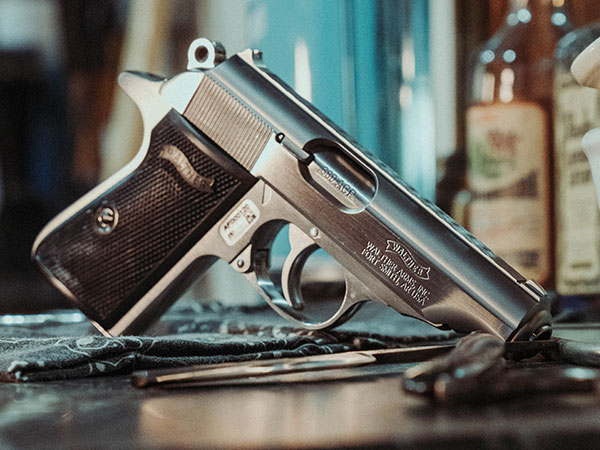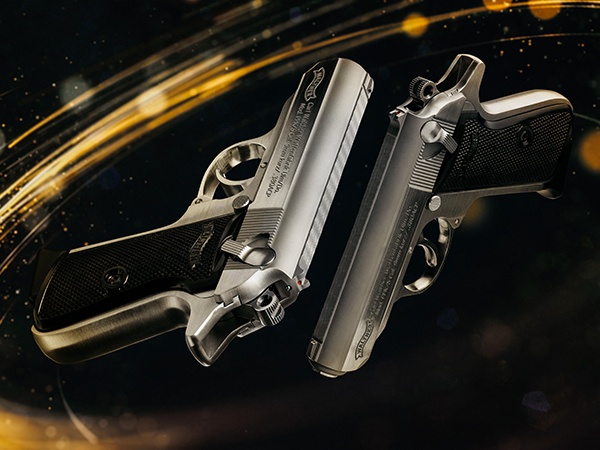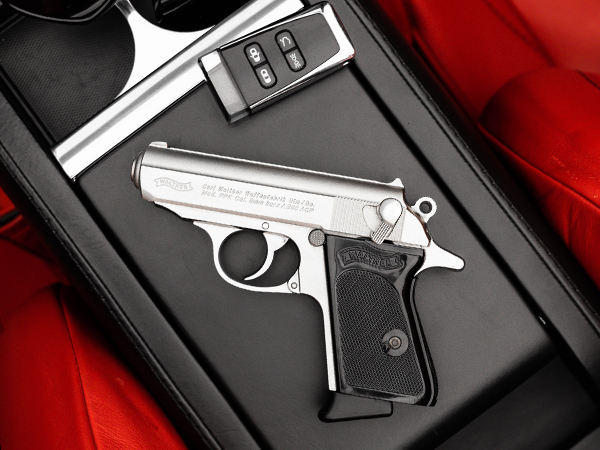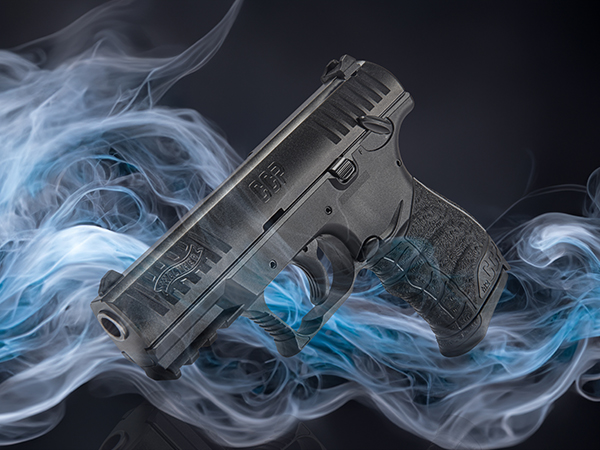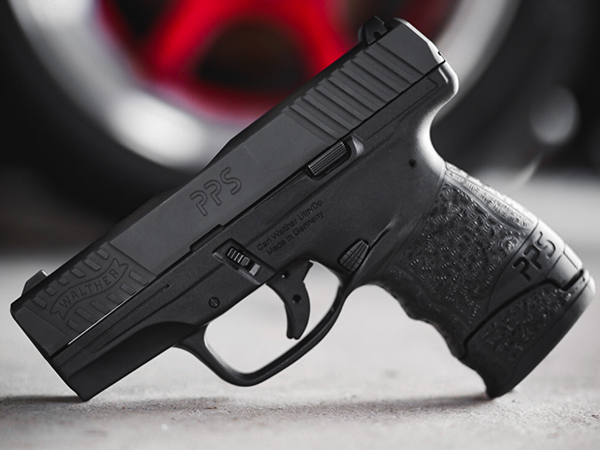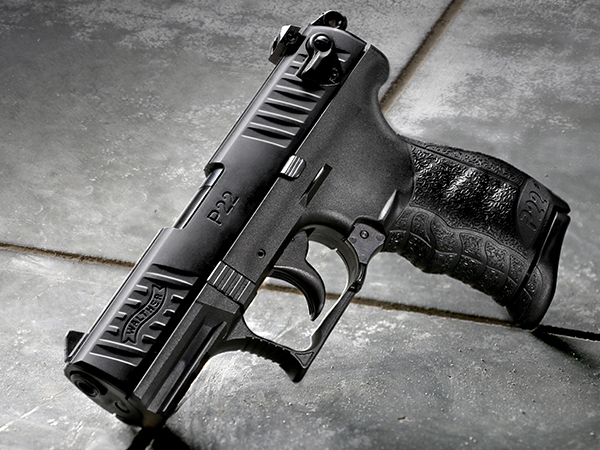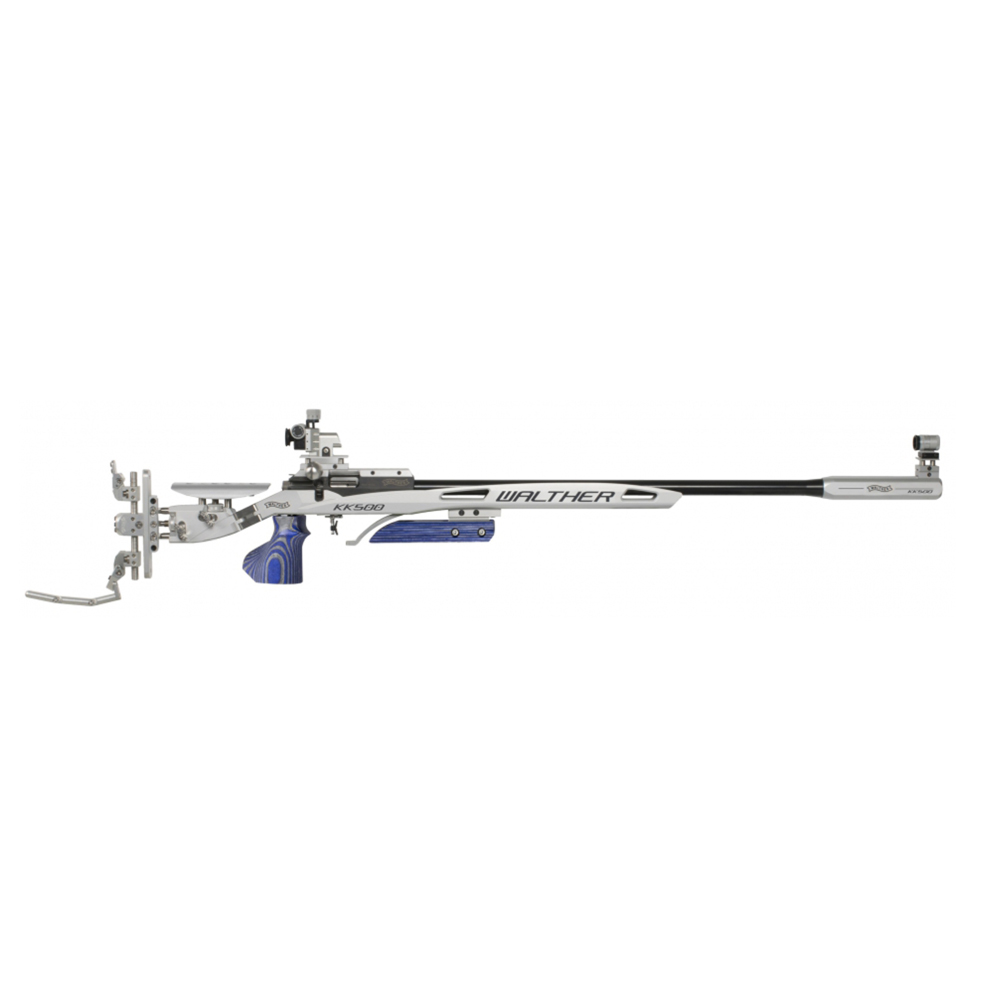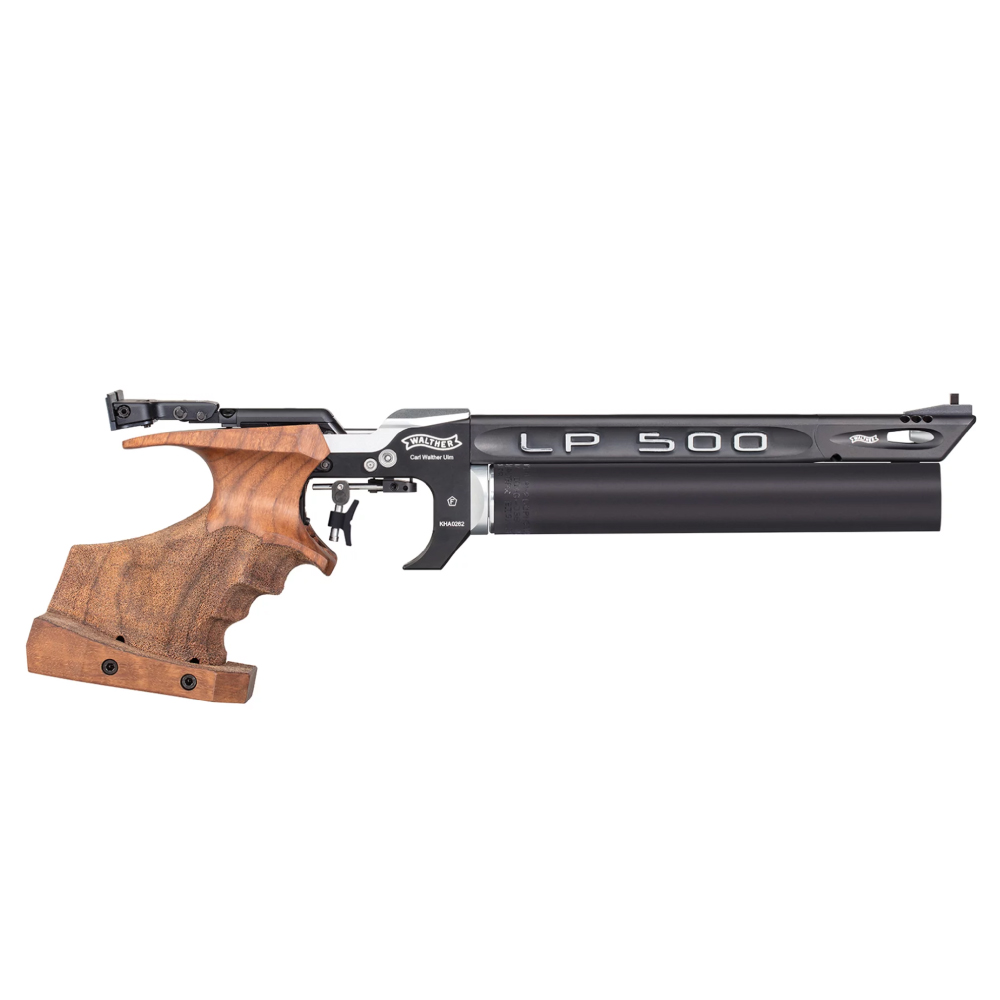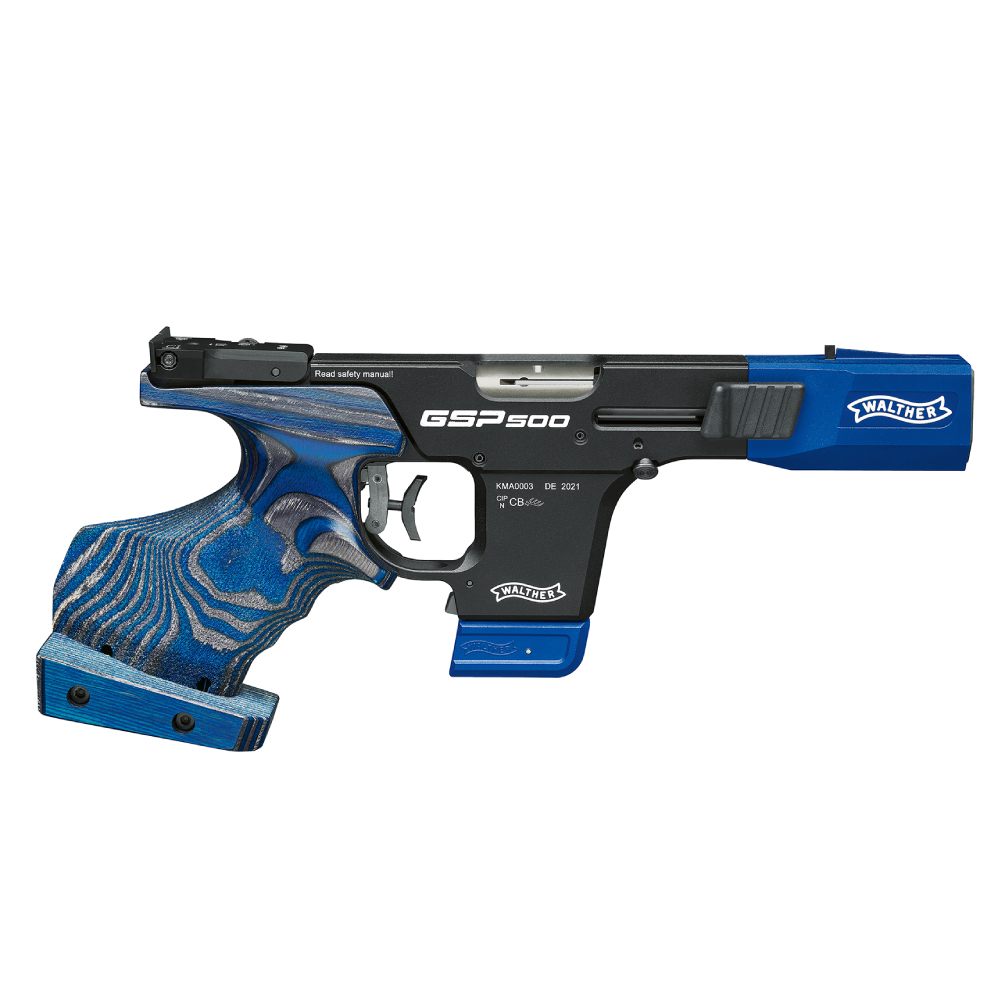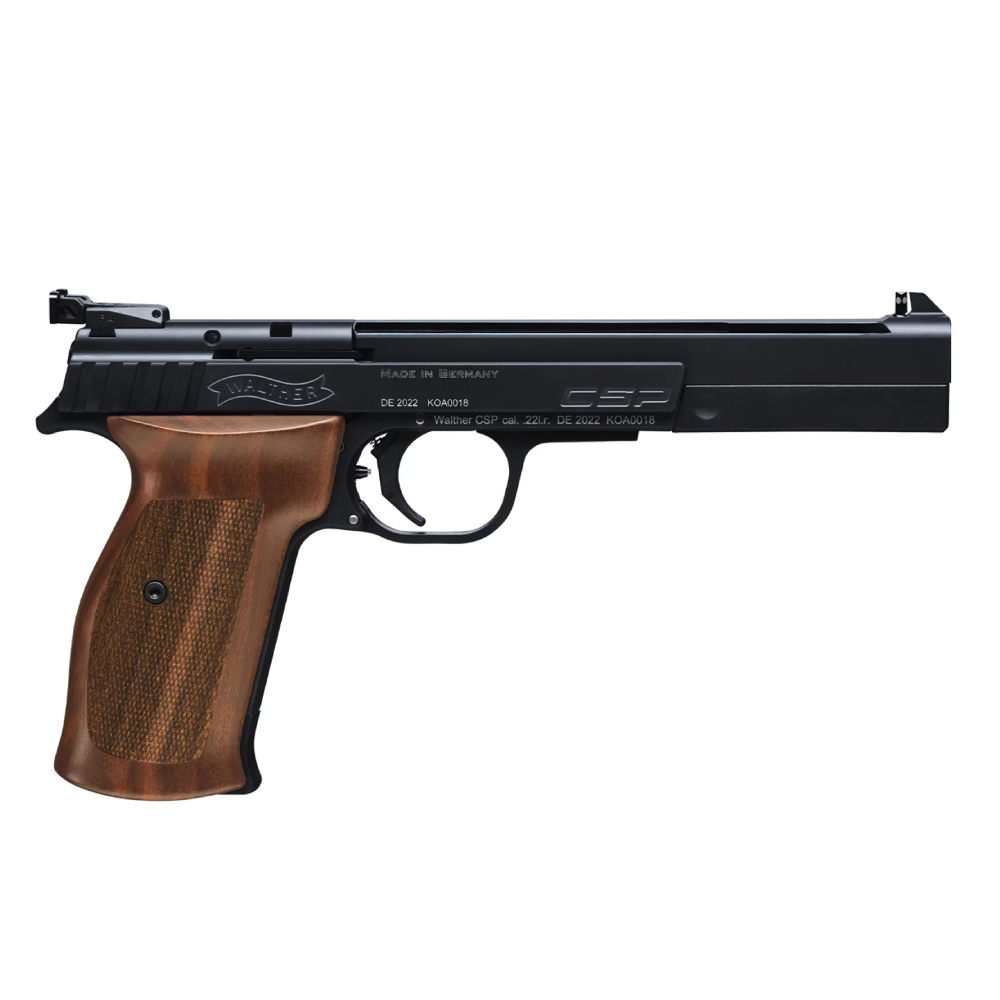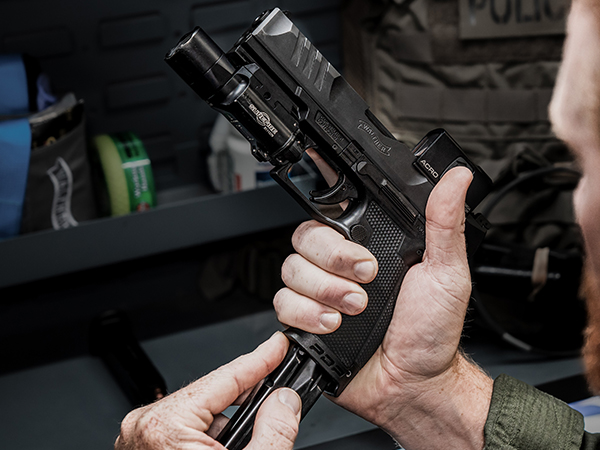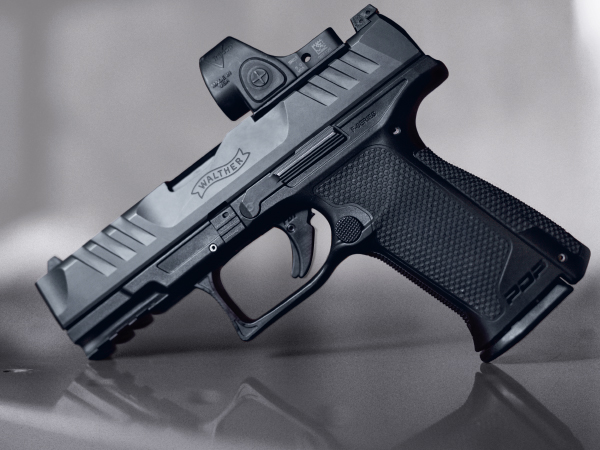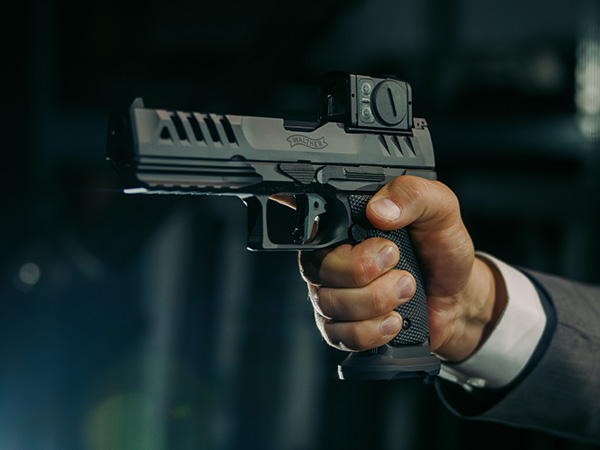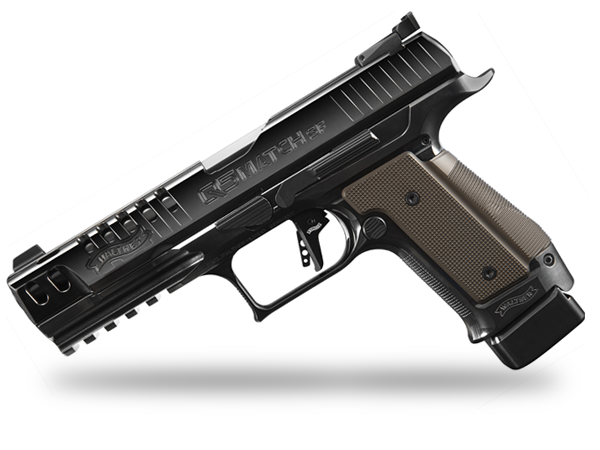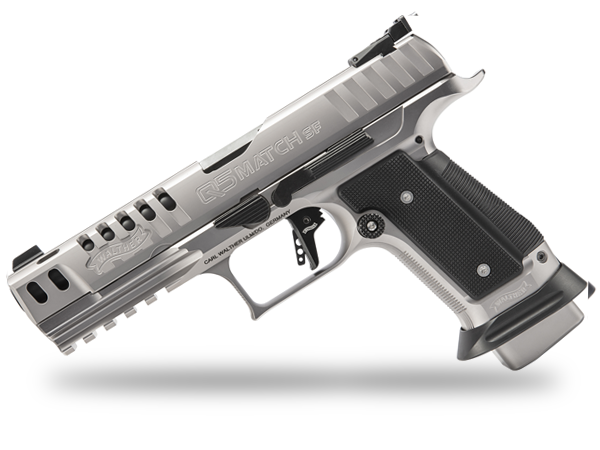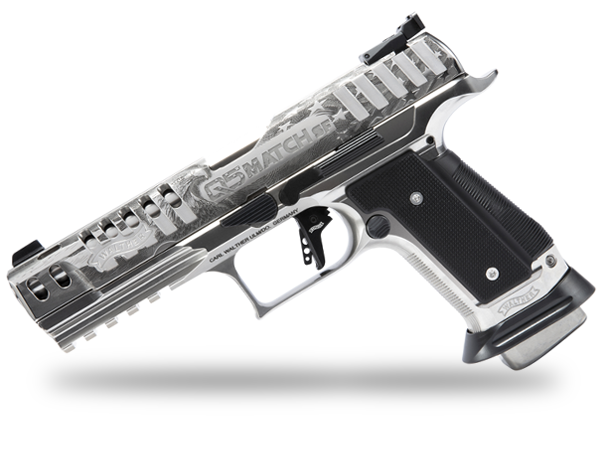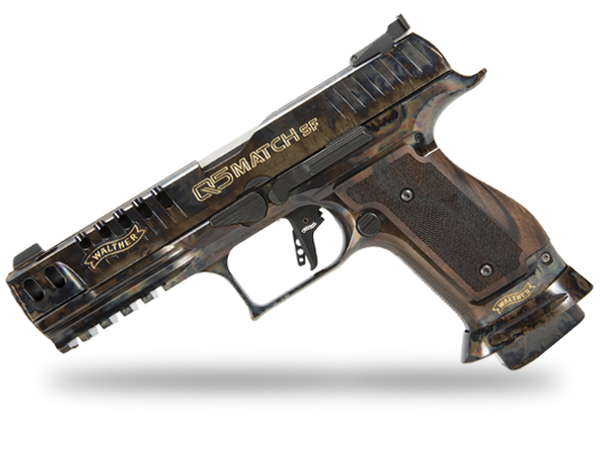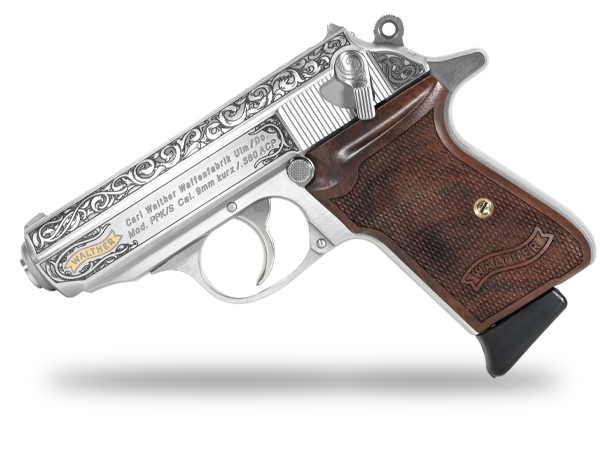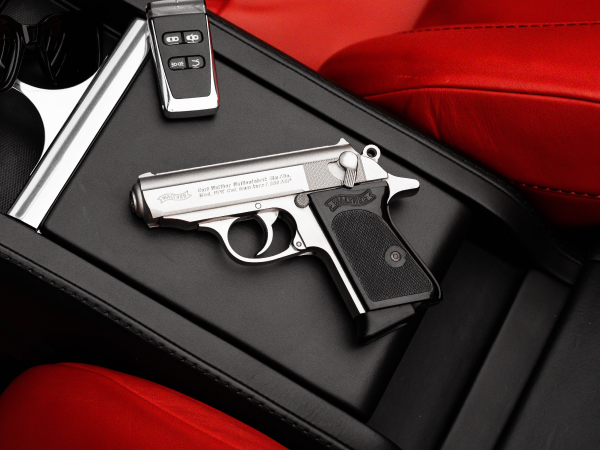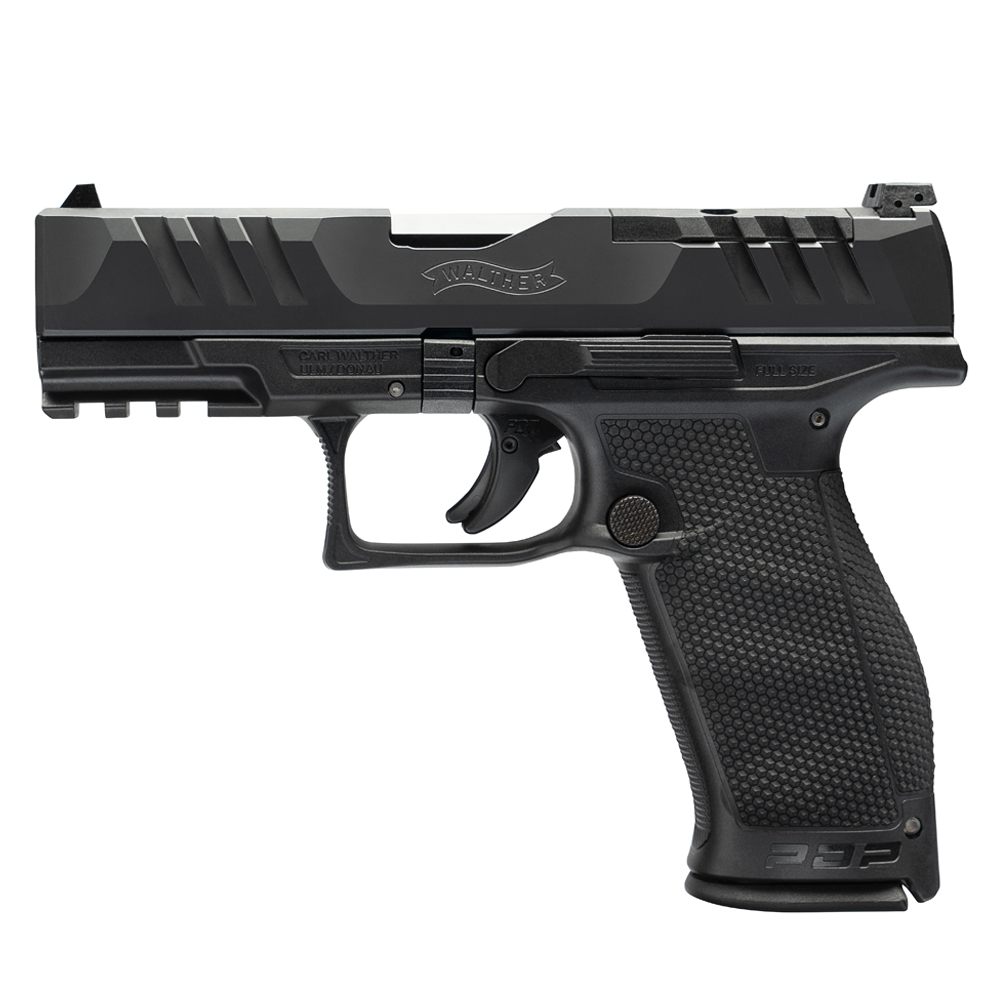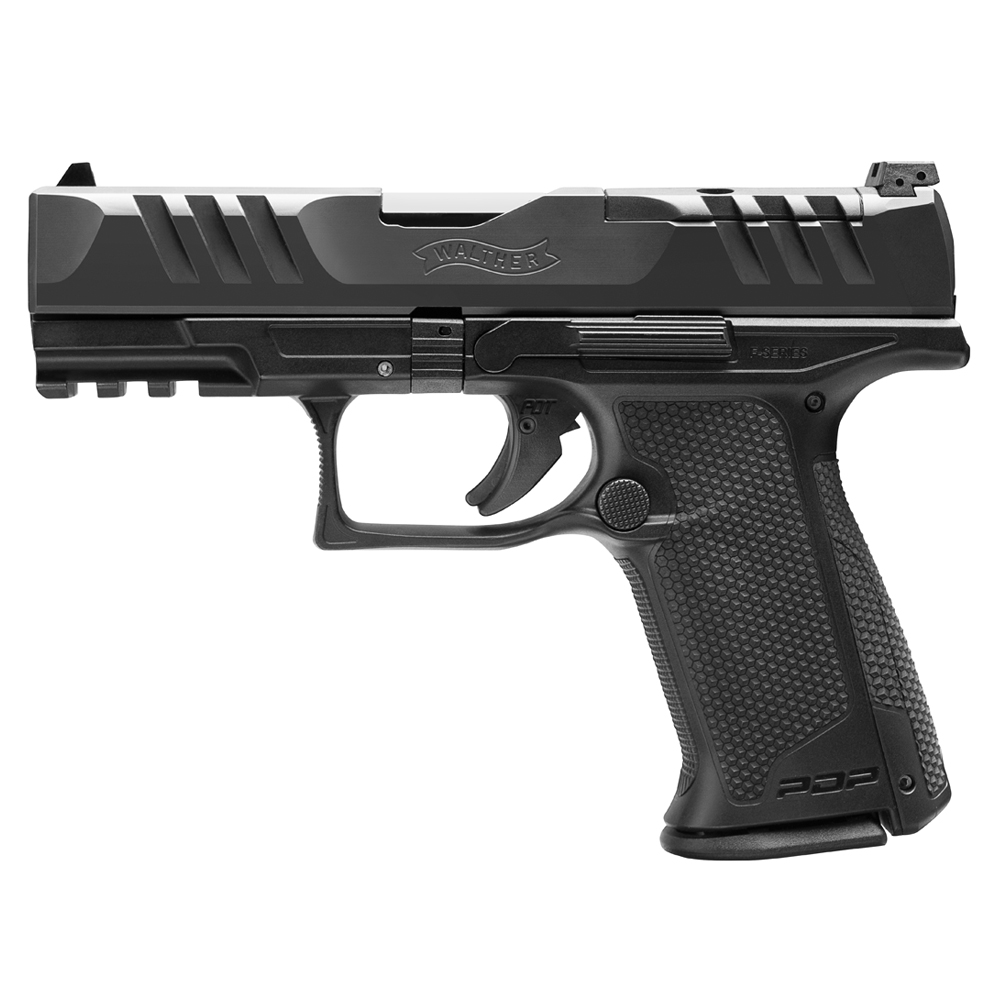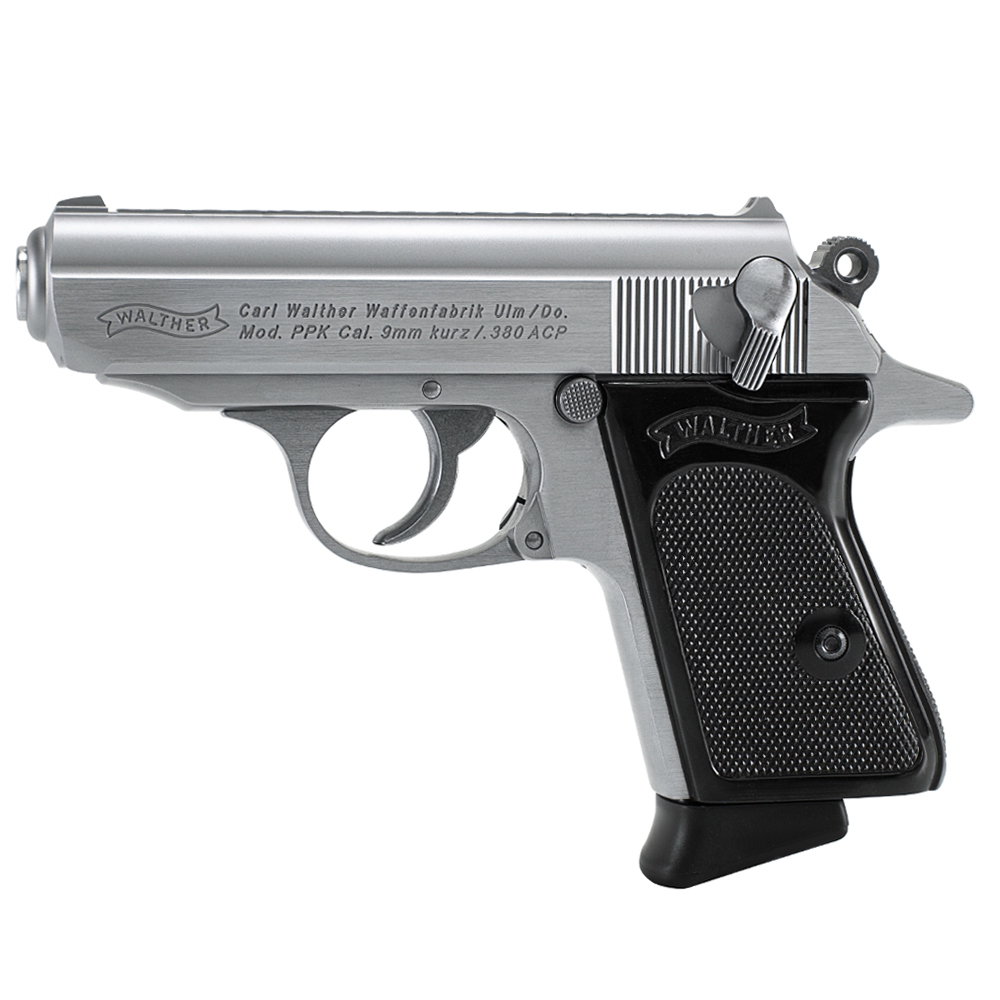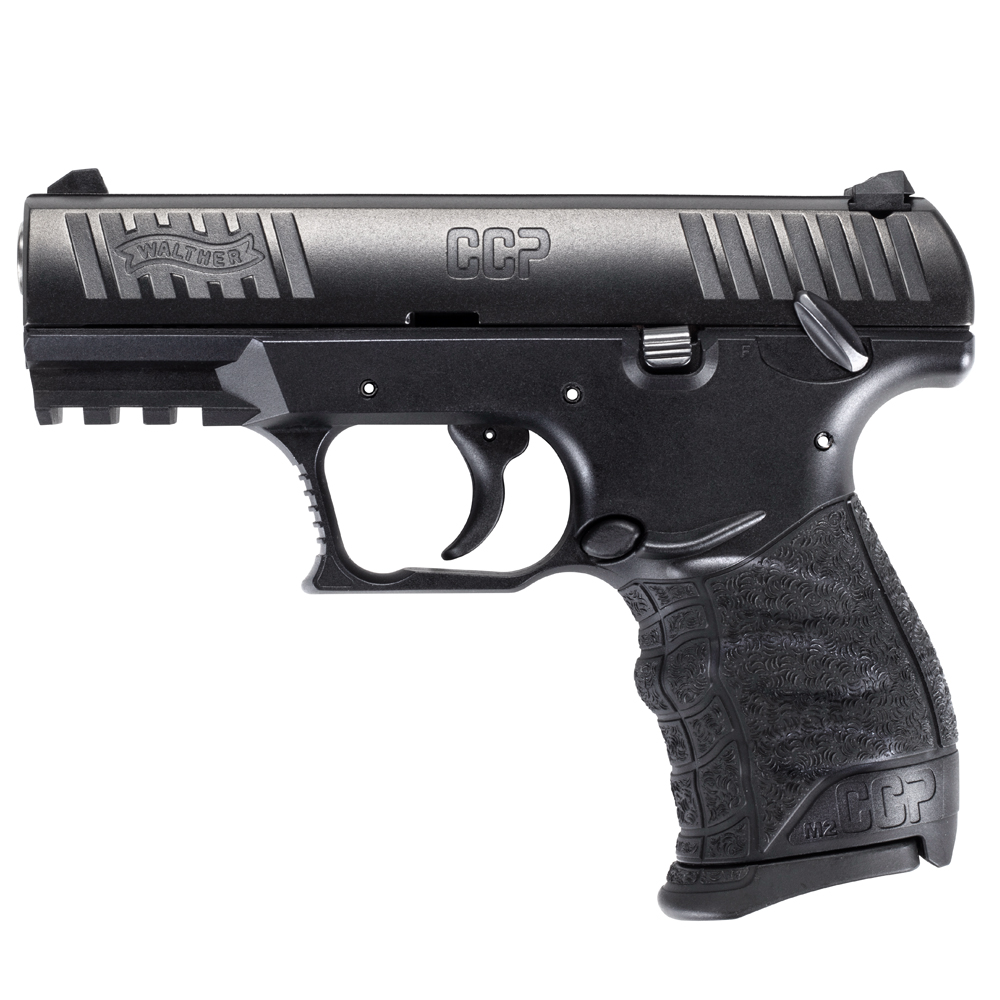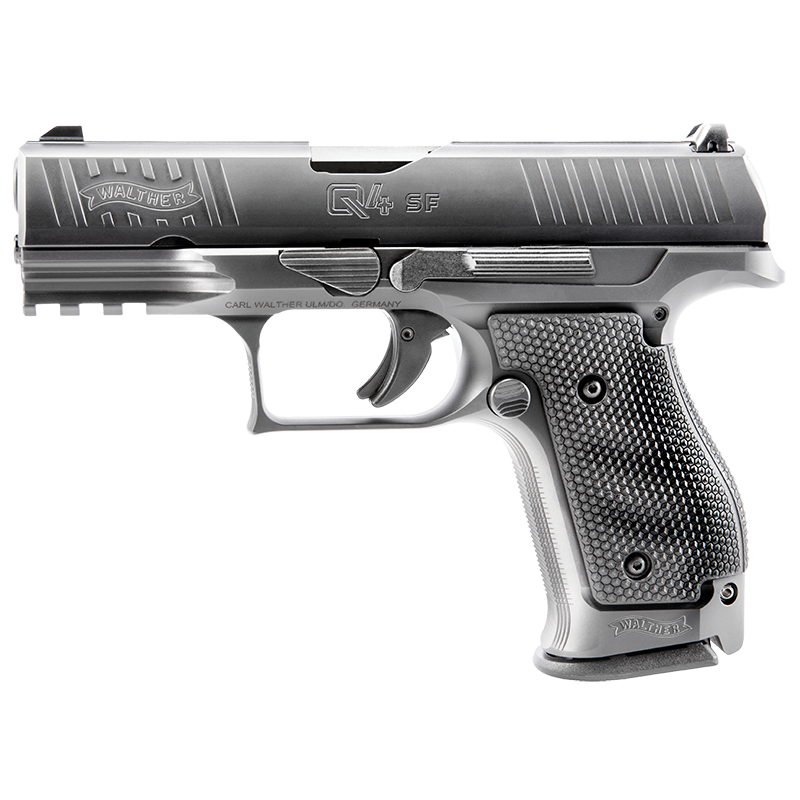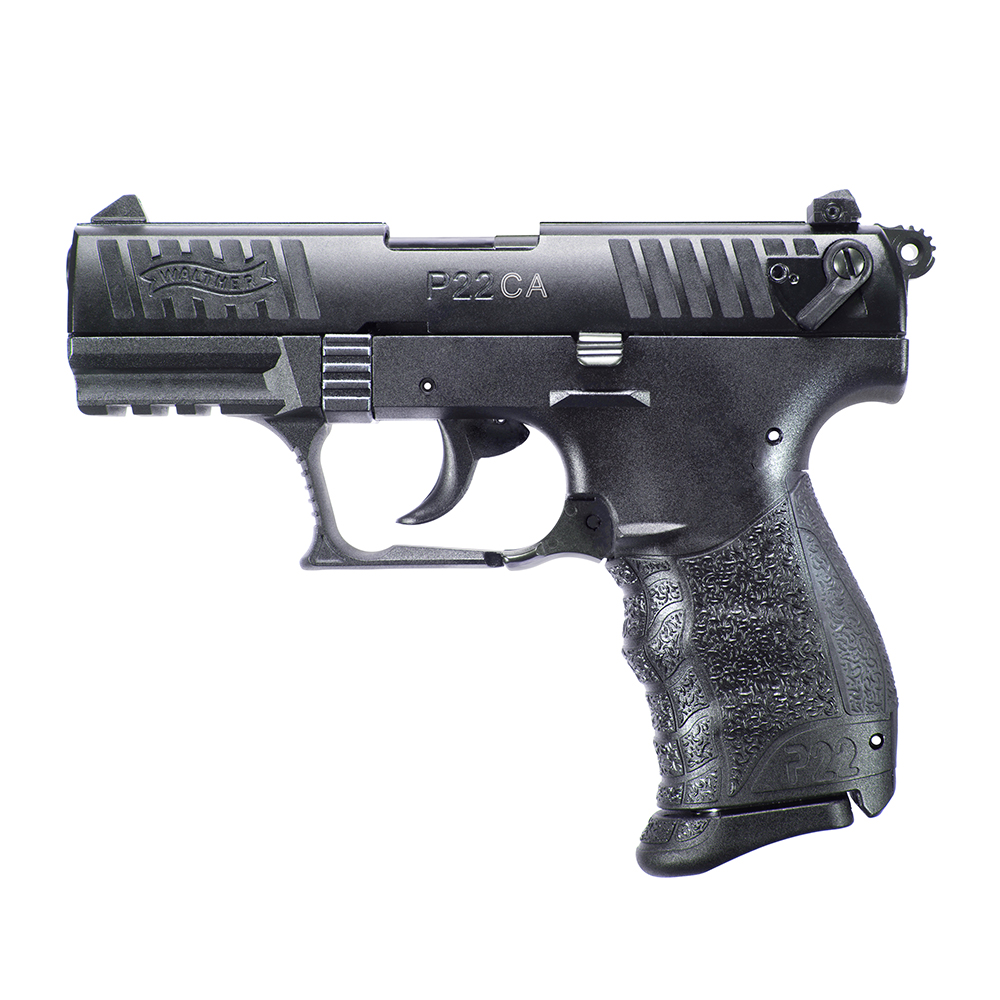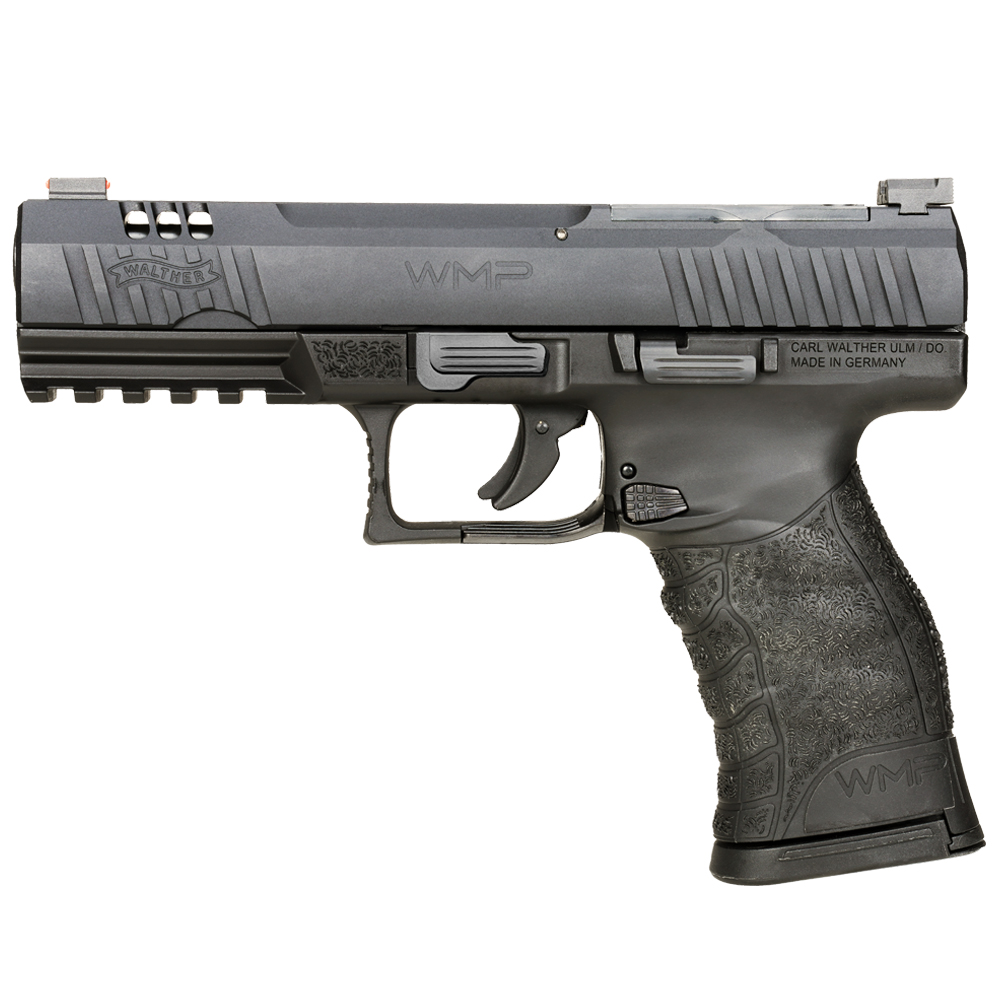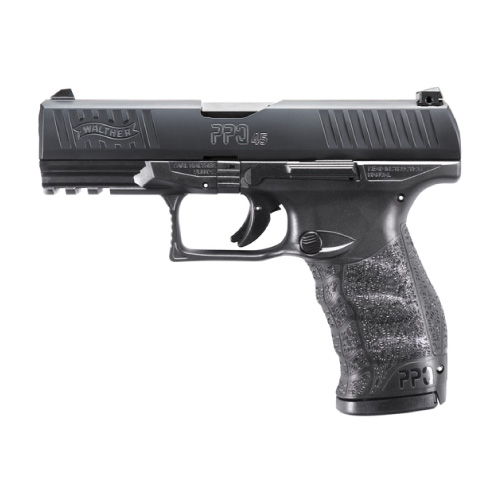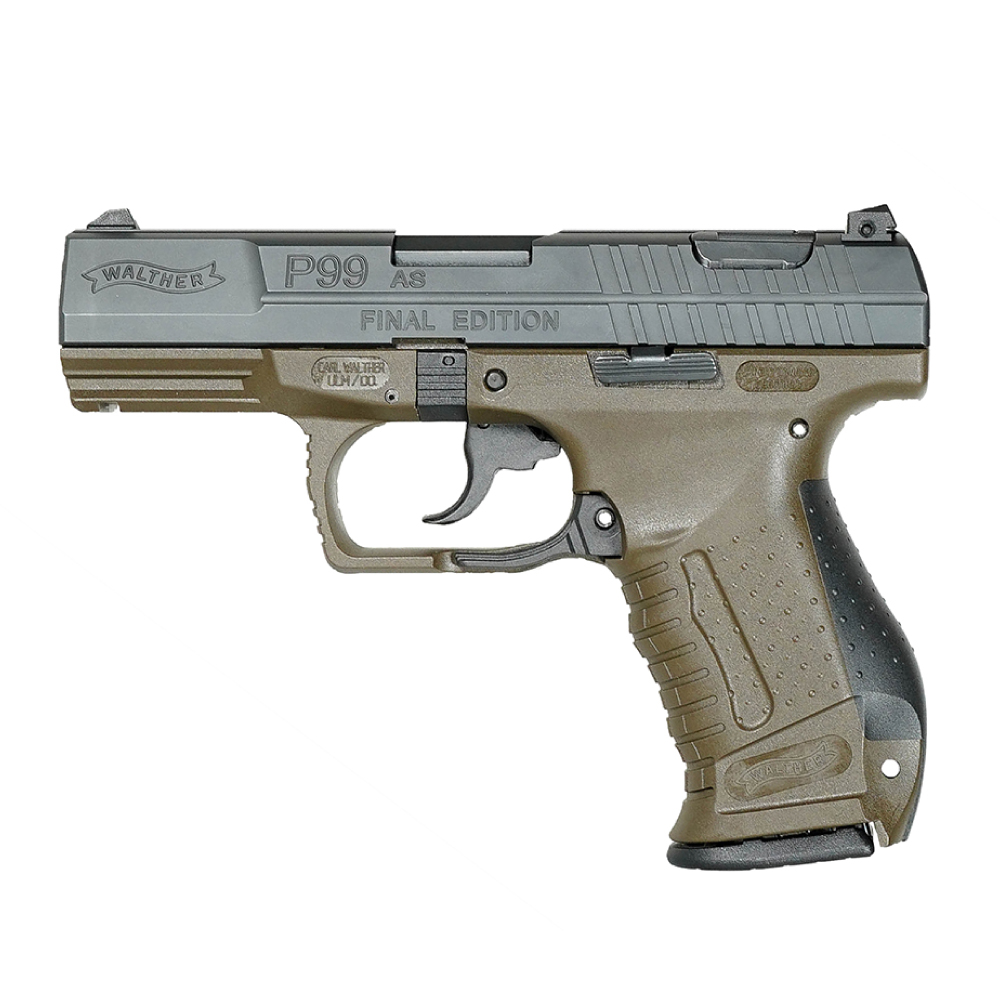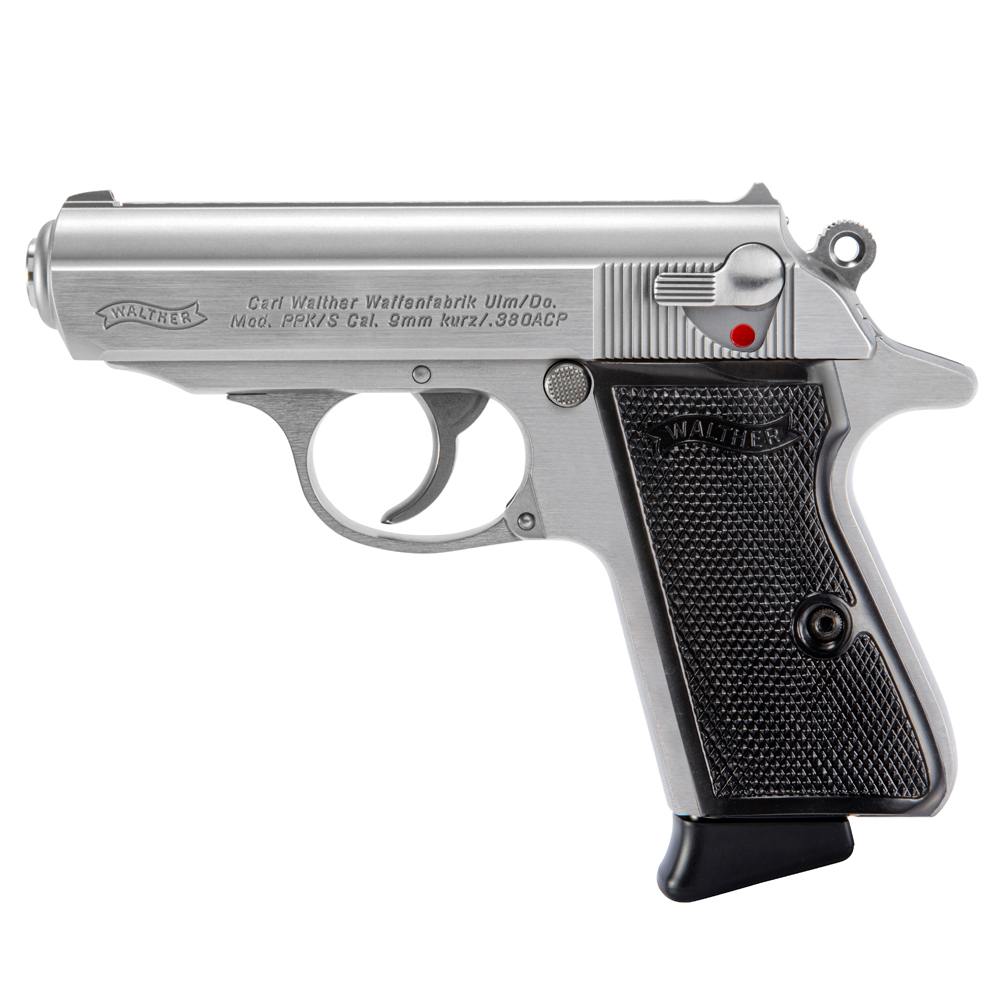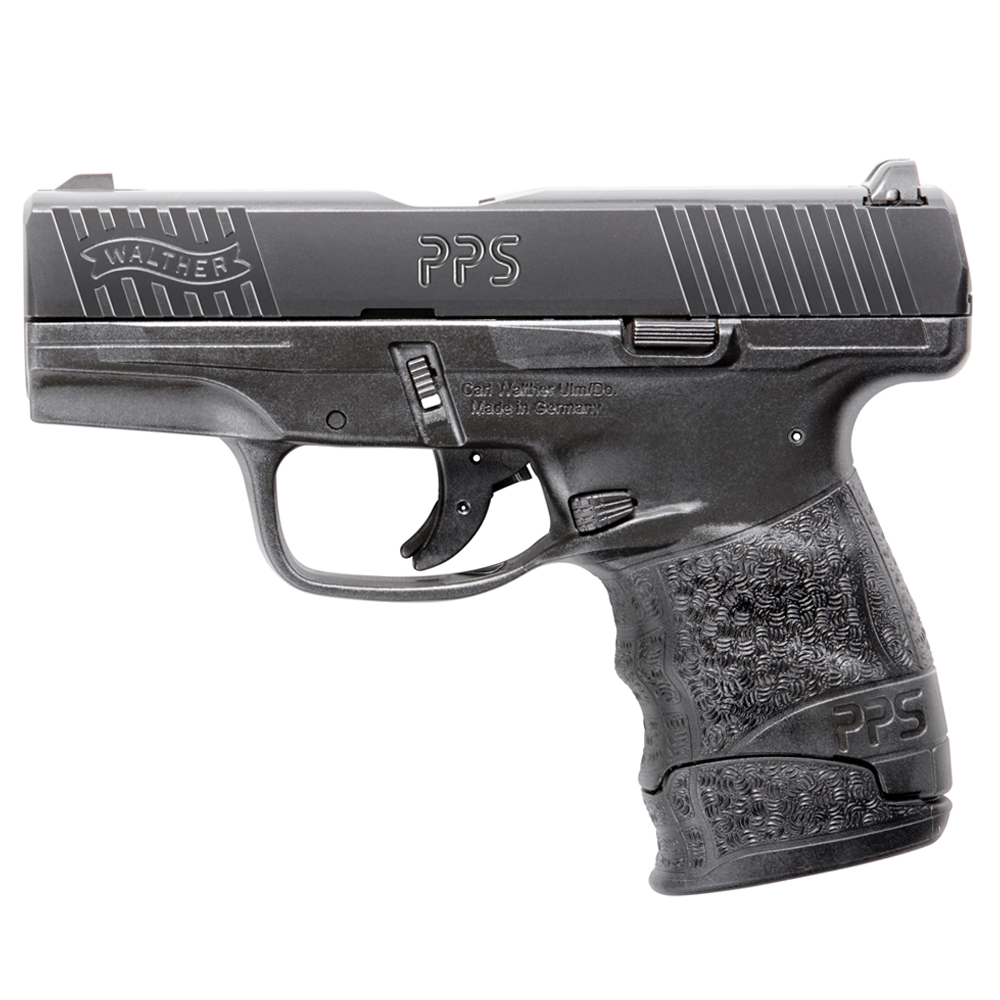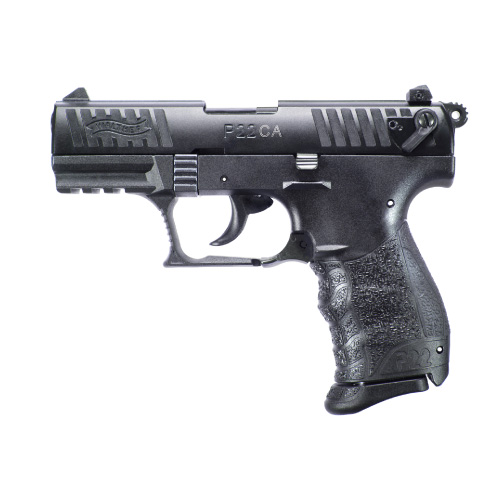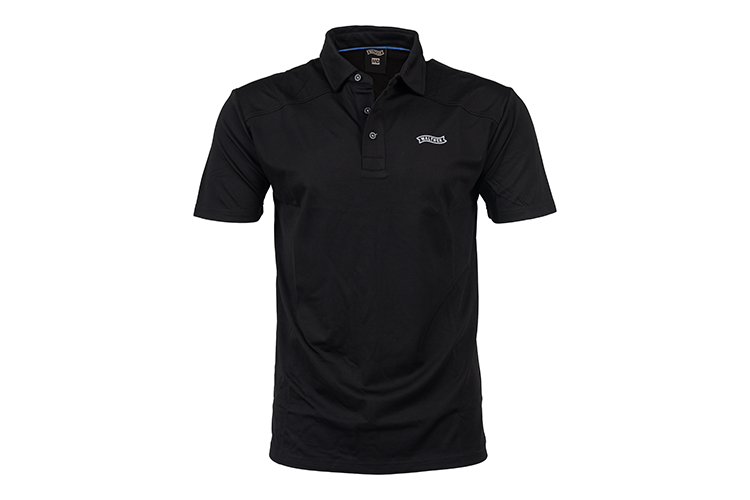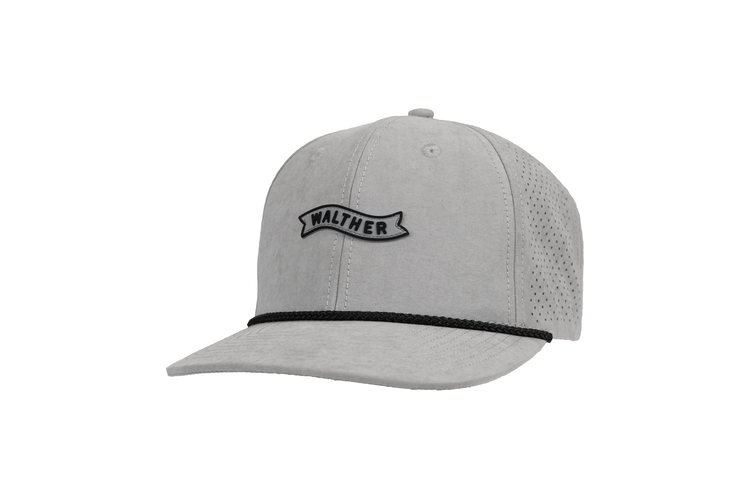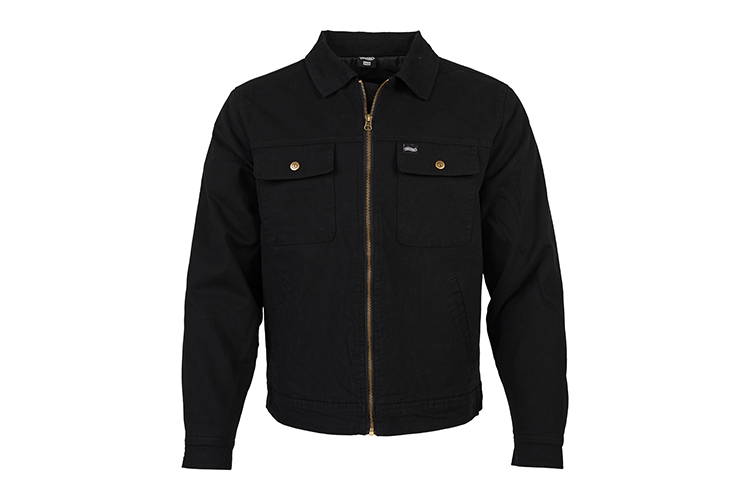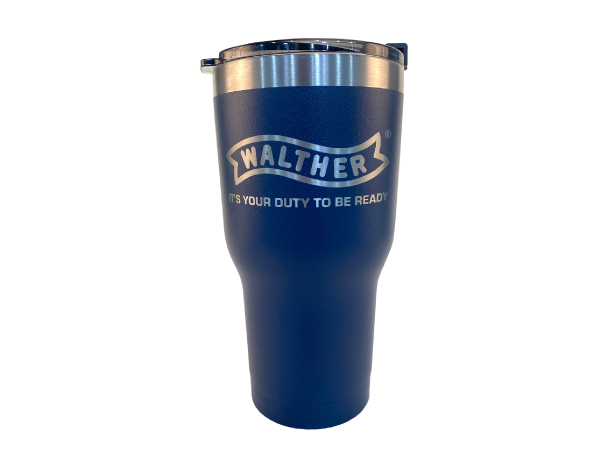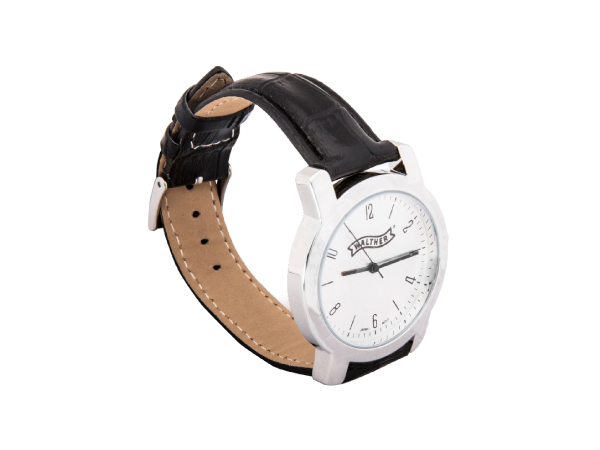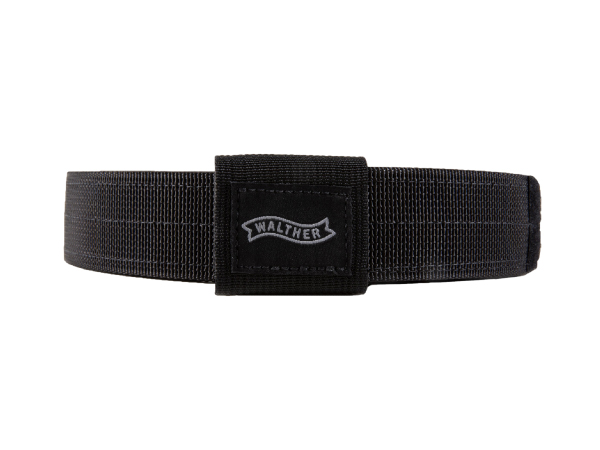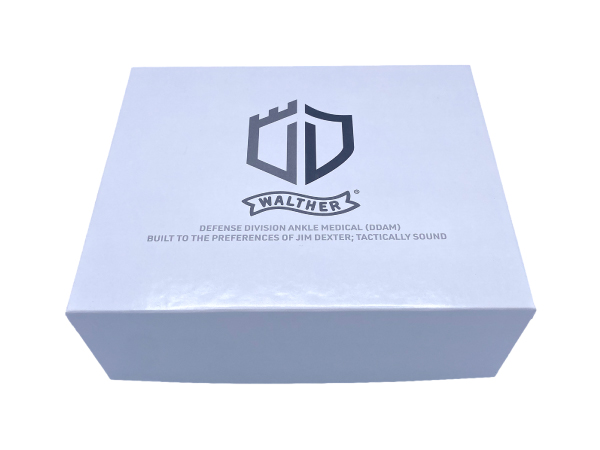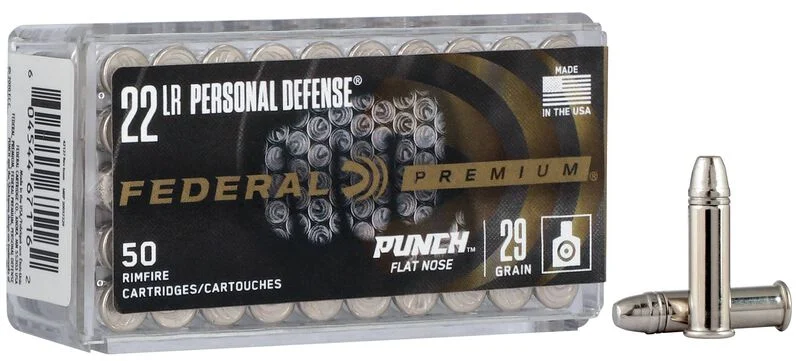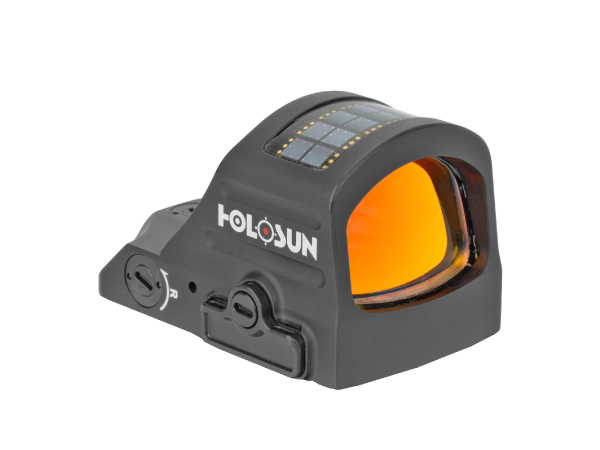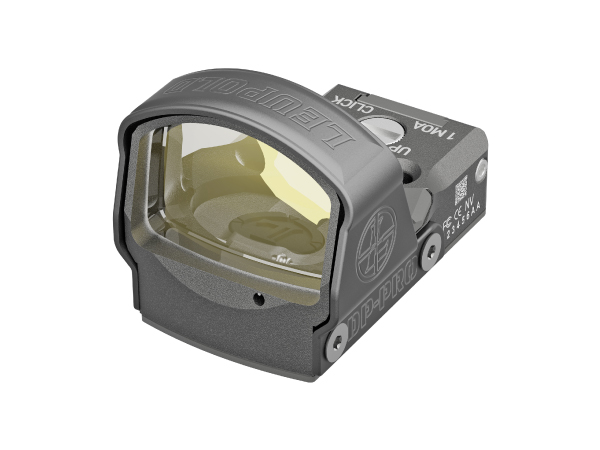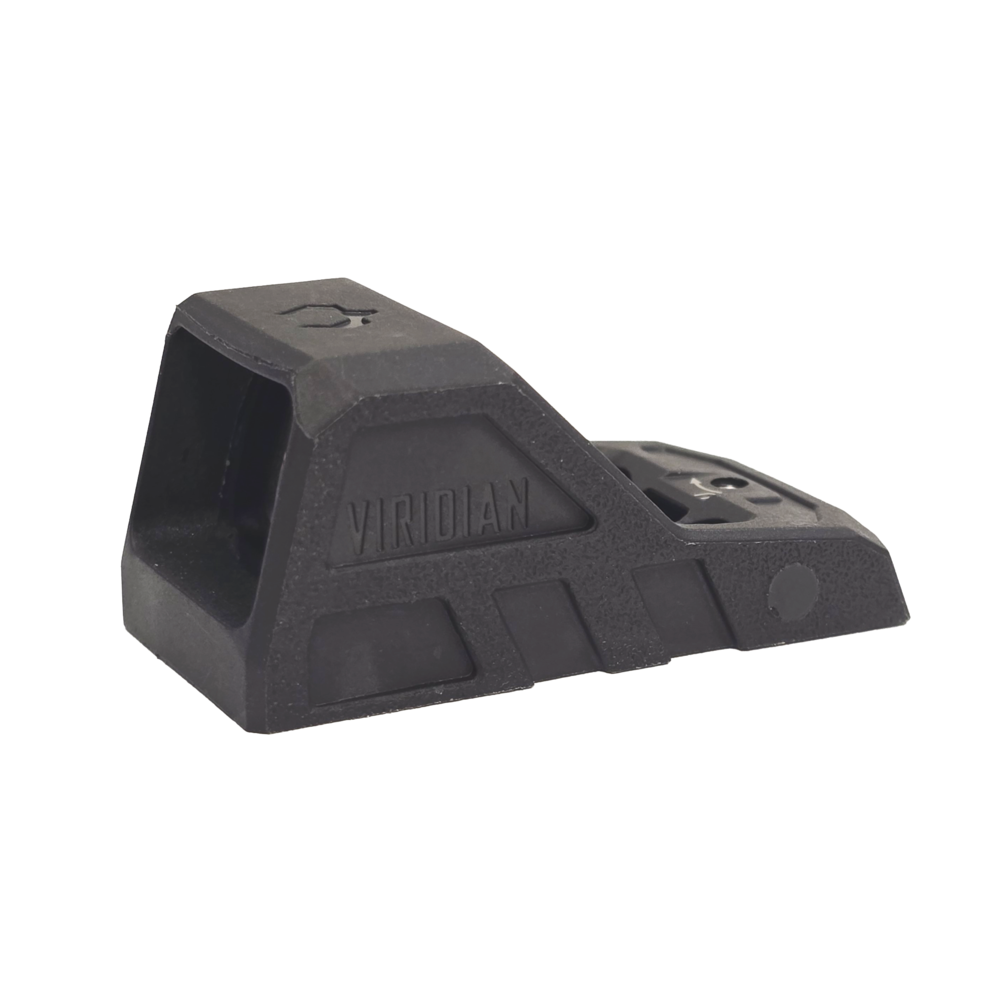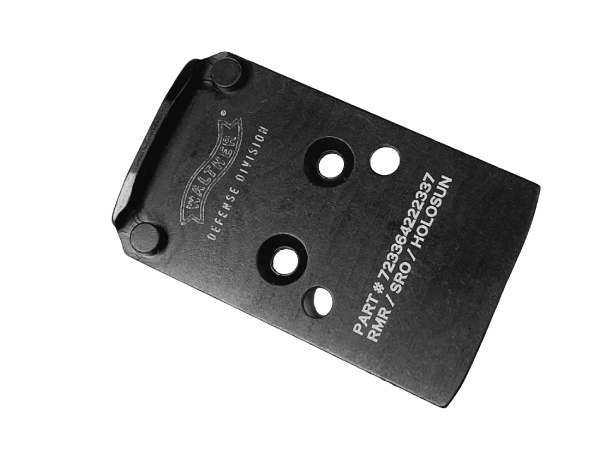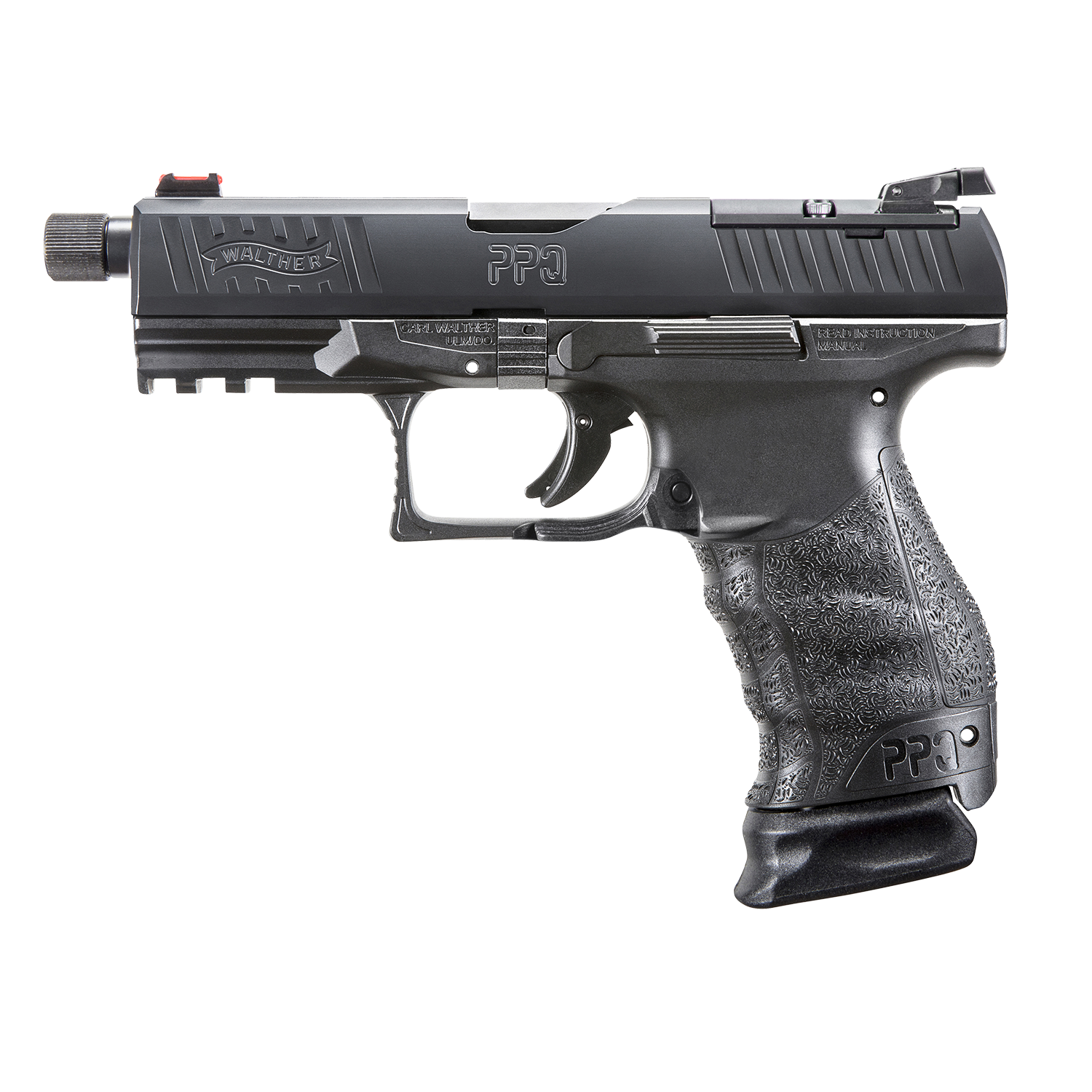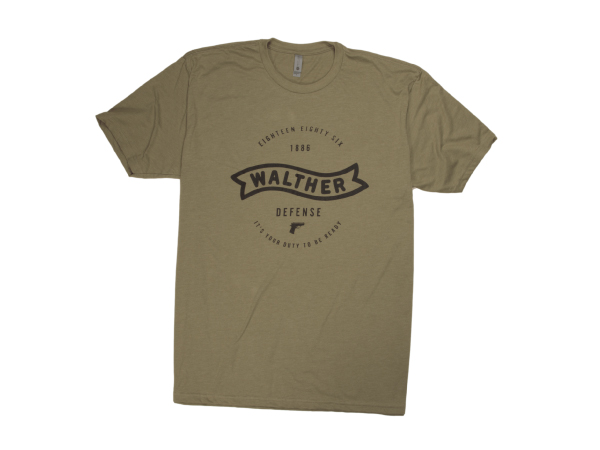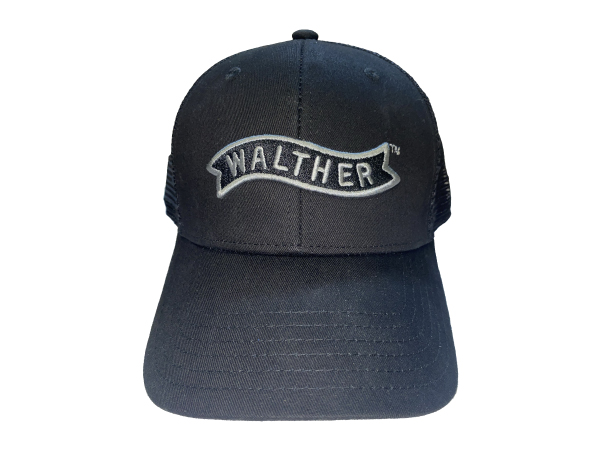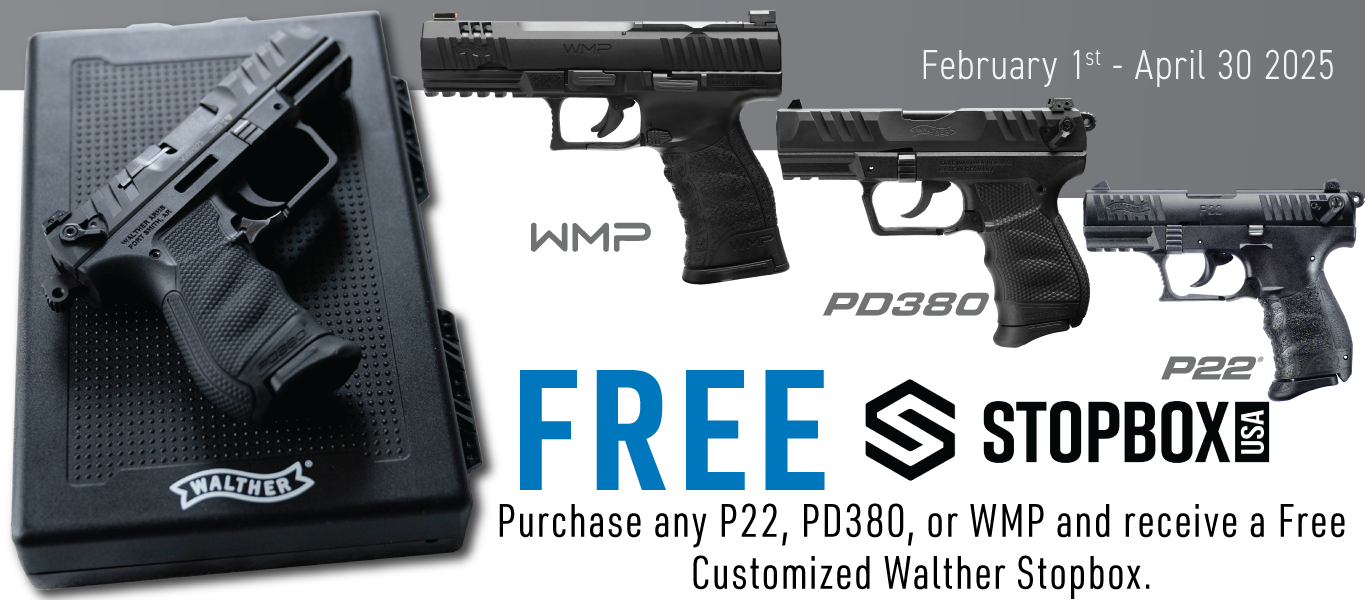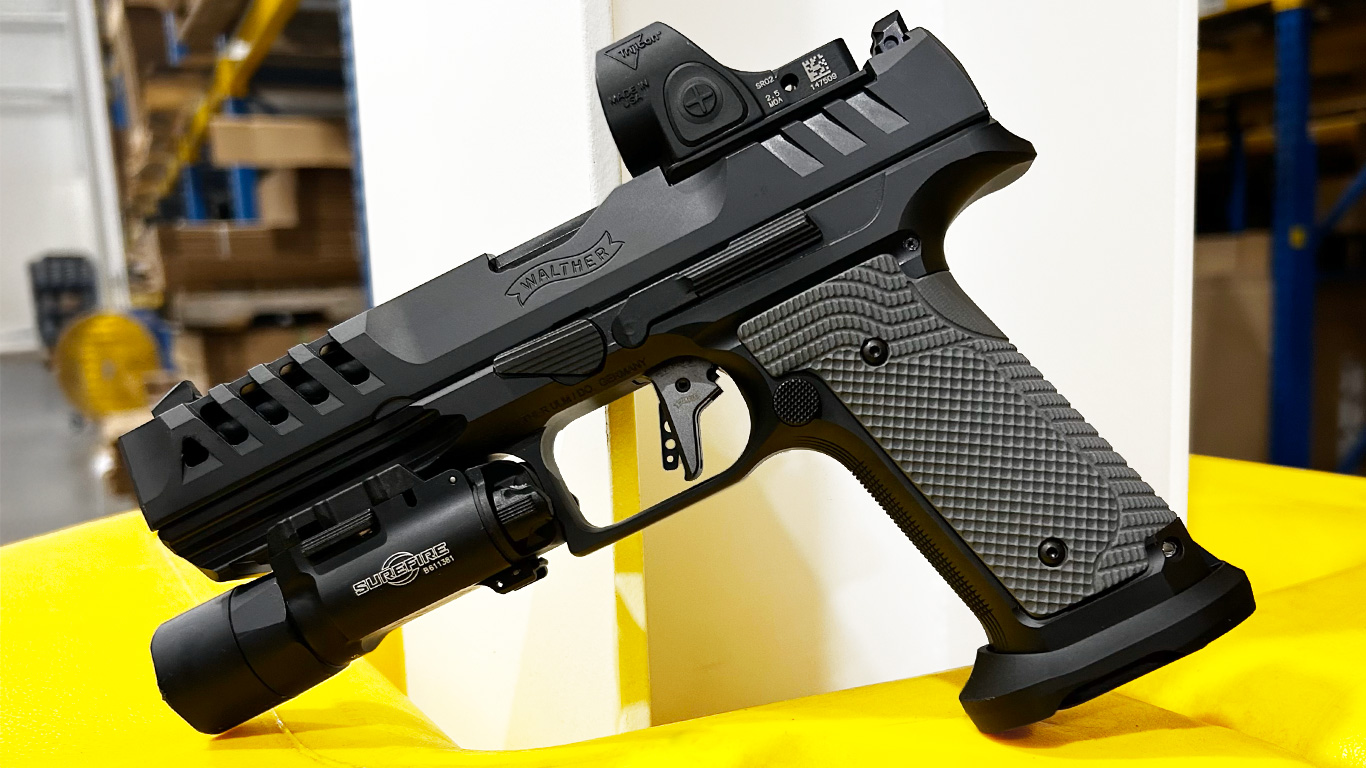THE FOUR BASICS OF FIREARMS SAFETY
- Treat ALL firearms as if they were loaded.
- DO NOT point the muzzle at anything you are not prepared or willing to destroy.
- Keep trigger finger off the trigger and outside the trigger guard until ready to shoot.
- Be certain of your target and what lies beyond it.
SECURE YOUR FIREARMS
Safe and secure storage of your firearm is one of your most important responsibilities. It is a full-time responsibility. You must always secure your firearm and ammunition making sure they are not accessible to children or other unauthorized persons.
There are a variety of locks and safe storage containers available in the marketplace which may be appropriate for your particular needs. By purchasing a firearm, you have taken on the responsibility of safely securing the firearm at all times and preventing its unauthorized use. It is your personal responsibility to select and use whatever devices or practices that will enable you to safely secure your firearm AT ALL TIMES.
Please review the Safe Storage and Transportation section at the bottom of this page for more information about safe storage techniques.
GUN SAFETY, OPERATION & STORAGE
Safe gun handling is YOUR personal responsibility at all times. Firearms are dangerous and can cause serious injury and death if it is misused or used inappropriately. Safety must be the prime consideration of anyone who owns or handles firearms. You are responsible for the firearm at all times. In owning a firearm, you must undertake full-time responsibility for your firearm’s safety and security. You must protect yourself and all others against injury or death from misuse of the firearm.
Safe storage is your responsibility. Particular, you must secure firearms safely from children and unauthorized users. A lock has been provided for your use with this firearm. A lock is not a substitute for safe and secure storage as defined in the Safe Storage and Transportation section of this manual.
Accidents are the result of violating the rules of safe gun handling and common sense. For your safety and the safety of others, never rely on mechanical features alone. Only your safe gun-handling habits will ensure the safe use of your firearm. This is your responsibility.
Never keep ammunition in the same location as the handgun. Store in a separate and secure place.
READ and UNDERSTAND these instructions before using your firearm.
At home, in the field, at the range, or anywhere, the first concern of every firearm owner should be safety. Apply the following safety rules in every situation, with any kind of firearm:
BEFORE HANDLING ANY FIREARM, UNDERSTAND ITS OPERATION.
Not all firearms are the same. Familiarize yourself with the mechanical features of any firearm you intend to use. If you feel uncertain about any operational aspects of your handgun, contact Walther customer support before proceeding with its operation.
ALWAYS SAFELY STORE AND SECURE YOUR FIREARM.
Safe and secure storage of your firearm is one of the most important responsibilities of firearms ownership. It is a full-time responsibility. You must secure your firearm and ammunition separately so that they are not accessible to children or other unauthorized persons. (See Safe Storage Instructions below.)
ALWAYS TREAT EVERY FIREARM AS IF IT IS LOADED AND WOULD FIRE IF THE TRIGGER IS PULLED.
Do not take anyone’s word that the firearm is unloaded – always check for yourself. Never pass your firearm to another person without clearing the acton and opening the cylinder and visually checking that it is unloaded. Keep your firearm unloaded and safely stored when not in use.
ALWAYS KEEP YOUR FIREARM POINTED IN A SAFE DIRECTION.
Never point a firearm at anyone or anything you do not intend to shoot whether or not it is loaded. This is particularly important when loading, unloading, or field stripping the gun. ALWAYS control the direction of the firearm.
NEVER PLACE YOUR FINGER INSIDE THE TRIGGER GUARD UNLESS YOU INTEND TO FIRE.
A firearm cannot be fired unless the trigger is pulled. Ensure that other objects do not touch the trigger.
ALWAYS BE SURE OF YOUR TARGET AND WHAT IS BEYOND IT.
Always be sure of where the bullet will strike and shoot only where there is a safe backstop free of obstructions, water or other surfaces which can cause ricochets. Do not fire into the sky.
ADDITIONAL IMPORTANT SAFETY RULES
- Never store a firearm with the hammer or striker in the cocked position.
- Do not allow a firearm to be used by individuals who do not understand these basic firearms safety rules. It is important that individuals handling a firearm understand the function, operation and rules of safe gun-handling.
- Ensure all accessories, such as holsters and grips, are compatible with the firearm and that the accessories do not interfere with safe operation.
- Use the correct ammunition for your particular firearm as indicated by the marking on the barrel. Never use non-standard, reloaded, or “handloaded” ammunition that has not been subjected to internal ballistic pressure testing.
- Discharging firearms in poorly ventilated areas, cleaning firearms, or handling ammunition may result in exposure to lead and other substances known to cause birth defects, reproductive harm, and other serious physical injury. Review the warnings and labels for all ammunition and cleaning products carefully. Have adequate ventilation at all times. Wash hands thoroughly after exposure.
- Never use alcohol or drugs before or while shooting. Do not use your firearm if you are on any medication which impairs, even slightly, your mental or physical ability.
- Wear eye and hearing protection appropriate for firearm use every time you discharge your firearm. Equally important is ensuring others in the vicinity of where you will be shooting do so as well.
- Do not allow any alteration or replacement of parts in your Walther firearm unless performed by a qualified gunsmith using genuine Walther parts. If you do otherwise, improper functioning of your firearm may occur and serious injury may result.
- Never cross obstacles such as fences or streams with a loaded firearm.
- Firearm safety training is available. Contact your dealer, Law Enforcement Agency, local sportsman’s club, etc. for availability.
- Appropriate use for your firearm means using your firearm for legal purposes. For instance – target shooting and lawful resistance of deadly criminal force.
These are basic firearms safety rules. There are other common sense safety rules that must be followed at all times. SAFE USE OF A FIREARM IS YOUR PERSONAL RESPONSIBILITY AND THE FAILURE TO FOLLOW ALL OF THESE BASIC SAFETY RULES MAY RESULT IN SEVERE PERSONAL INJURY OR DEATH.
SAFE STORAGE AND TRANSPORTATION
WARNING: SAFE AND SECURE STORAGE OF YOUR FIREARM IS ONE OF THE MOST IMPORTANT RULES OF FIREARM SAFETY. YOUR FAILURE TO FOLLOW THESE RULES MAY RESULT IN SERIOUS INJURY OR DEATH.
You must always secure your firearm and ammunition separately and make them inaccessible to children or other unauthorized persons.
Safe and secure storage and transportation of your firearm are your responsibility. It is a full-time responsibility.?ALWAYS STORE YOUR FIREARM UNLOADED. Your firearm and ammunition must be stored separately inaccessible to children and unauthorized persons.
Do not use a lock on a loaded handgun AND NEVER LOAD A LOCKED HANDGUN!!
Only you can determine what devices or practices are appropriate for the safe storage of your firearm and your ammunition. NEVER ASSUME THAT A “HIDING” PLACE IS A SECURE STORAGE METHOD. Others may be aware of your storage location or come upon it by chance. It is your personal responsibility to use common sense when storing and securing your firearm and ammunition, and additionally to always make sure that it is not accessible to children or other unauthorized persons.
FOLLOW THE LAW!!
You must be familiar with all local, state, and federal laws regarding the safe storage and transportation of your firearm. Failure to know and follow the law might result in unauthorized access or use of your firearm by another. Obey all laws relating to the storage and transportation of firearms.
NEVER TRANSPORT A LOADED FIREARM.
When transporting your firearm, make sure it is unloaded and that the cylinder or action is open.
Your local police department or gunshop will furnish you with available information on storing and/or transporting a firearm legally.
YOUR FIREARM IS YOUR RESPONSIBILITY.
Protect your firearm from theft or misuse by untrained or unqualified individuals.
MAINTENANCE AND STORAGE
When storing, do not encase your firearm in anything that attracts or holds moisture. Examples; leather or heavy cloth. In addition, do not store guns with a plug inserted in the barrel for this can be a contributing factor to moisture accumulation. If you store your firearm for an extended period, the bore, chambers and internal working mechanism should be oiled with acid-free lubricating oil or preservative. Additionally, the external working mechanisms, frame, cylinder and barrel should be coated with an anti-rust oil. Clean your firearm before using it. Every time you clean your firearm, check it for signs of wear. Do not use your firearm is if wear is visible. Return it to Walther for service or have it checked by a qualified gunsmith.
MAINTENANCE BEFORE USE
Before using your firearm, it must to be cleaned. (See Cleaning Instructions.) Treat your firearms with either a preservative or oil to protect it against corrosion. Wipe off all excess oil from the bore, chambers (charge holes), and exposed areas using a clean swab or patch. Apply a light coat of high quality gun oil to the outside surfaces and mechanism. Do not to oil the mechanism to the degree that dust and lint may be trapped by the oil.

